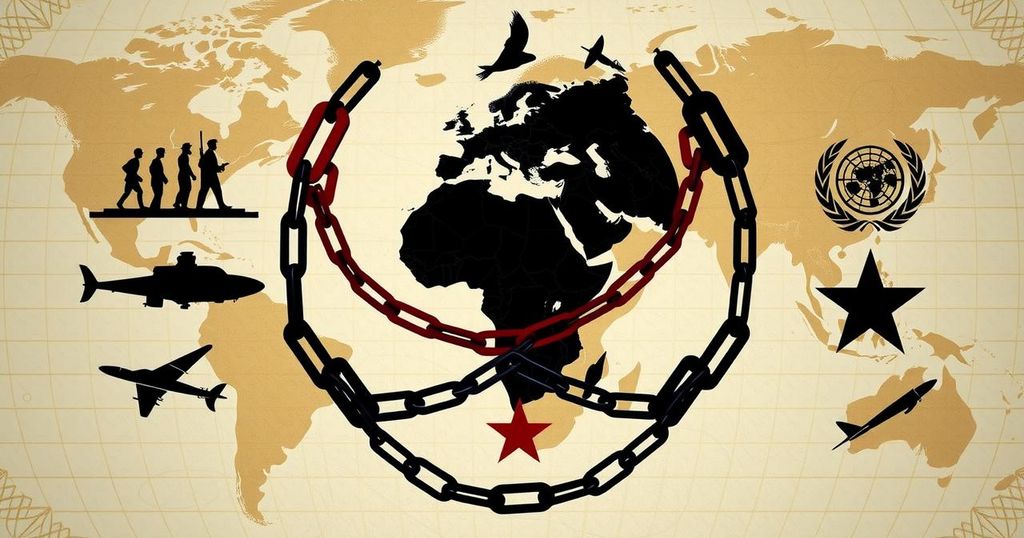Syria is set to permit Russian military bases in exchange for diplomatic support and financial compensation. Interim President Ahmed Sharaa is renegotiating base leases following the fall of Assad. Recent negotiations included discussions on debts, humanitarian aid, and rebuilding costs, showcasing the strategic necessity of Russian involvement in Syria’s future amidst broader geopolitical tensions.
In a significant development, Syria is poised to allow Russian military bases to remain operational in exchange for diplomatic support and financial aid from Moscow. Historically, Russian forces have had a substantial presence in Syria, using the Hmeimim Air Base and Tartous Naval Base to launch operations against insurgents aligned with the previous Assad regime.
With the regime’s dynamics shifting after the ousting of Bashar al-Assad, who sought refuge in Russia, the new interim President of Syria, Ahmed Sharaa, is interested in renegotiating base leases to enhance Syria’s terms with Russia while maintaining Moscow’s strategic involvement. The arrangement appears mutually beneficial as both parties navigate international sanctions and economic struggles.
During recent high-level discussions, Sharaa addressed critical topics such as previous loans to the Assad administration, the future status of Assad, and the return of funds allegedly held in Russia. Although negotiations proceeded amicably, the prospect of restarting trade—including Russian grain supplies—remains contentious due to ongoing restrictions.
Additionally, the potential costs of rebuilding Syria, estimated at an alarming $400 billion, have prompted Sharaa and officials to seek reparations from Russia for wartime damages, despite the Kremlin’s reluctance to accept responsibility. Russia’s continued support is vital as Syrian leadership strategizes to reclaim their nation amidst external military presences from the U.S., Israel, and Turkey.
In summary, the future of Russian military bases in Syria appears to hinge on a delicate negotiation process involving compensation, diplomatic recognition, and strategic military presence. As the Assad regime has changed, new leadership seeks to balance relations with Moscow, which remains deeply involved in Syria’s economic and military affairs. The outcomes of these negotiations will significantly impact Syria’s recovery post-conflict and the geopolitical landscape of the region.
Original Source: stratnewsglobal.com




